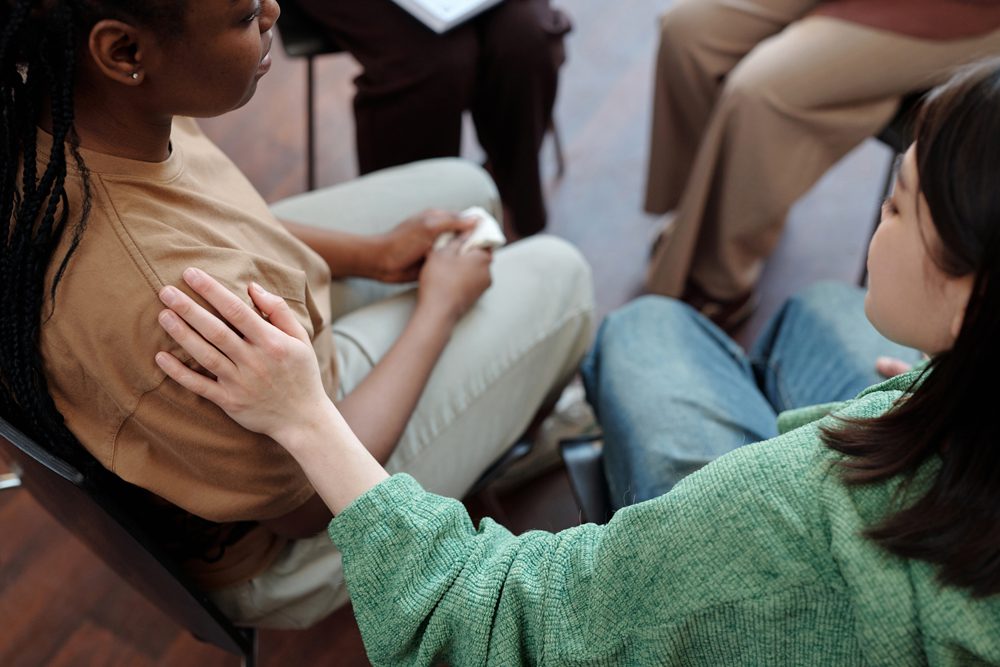Post-Traumatic Stress Disorder Treatment in San Antonio, Texas

Post-Traumatic Stress Disorder (PTSD)
Post-Traumatic Stress Disorder (PTSD) is a mental health condition that can develop after an individual experiences or witnesses a traumatic event. These events can include combat, natural disasters, serious accidents, terrorist acts, rape, or other violent personal assaults.
PTSD is characterized by intense, disturbing thoughts and feelings related to the traumatic experience that last long after the event has ended.
Explore PTSD & Treatment Options
Are you looking to take back your life?
(888) 235-3003
Treatment Paths
Our Programs
Symptoms of PTSD
Symptoms of PTSD are typically grouped into four categories:
- Intrusive Memories:
- Recurrent, unwanted distressing memories of the traumatic event
- Flashbacks, or reliving the traumatic event as if it were happening again
- Nightmares about the traumatic event
- Severe emotional distress or physical reactions to reminders of the trauma
- Avoidance:
- Avoiding places, activities, or people that remind you of the traumatic event
- Avoiding thoughts or feelings related to the trauma
- Negative Changes in Thinking and Mood:
- Negative thoughts about yourself, other people, or the world
- Hopelessness about the future
- Memory problems, including not remembering important aspects of the traumatic event
- Difficulty maintaining close relationships
- Feeling detached from family and friends
- Lack of interest in activities you once enjoyed
- Difficulty experiencing positive emotions
- Feeling emotionally numb
- Changes in Physical and Emotional Reactions (Arousal Symptoms):
- Being easily startled or frightened
- Always being on guard for danger
- Self-destructive behavior, such as drinking too much or driving too fast
- Trouble sleeping
- Trouble concentrating
- Irritability, angry outbursts, or aggressive behavior
- Overwhelming guilt or shame

PTSD Causes and Risk Factors
PTSD can develop after experiencing or witnessing a traumatic event, but not everyone who goes through trauma will develop PTSD. Factors that may increase the likelihood of developing PTSD include:
- Severity and Duration of the traumatic event
- Personal History of mental health issues or prior trauma
- Lack of Support after the traumatic event
- Biological Factors: Certain genetic and neurobiological factors may increase the risk
Treatment for Post-Traumatic Stress Disorder (PTSD)
Therapies
Psychotherapy (Talk Therapy)
- Cognitive Processing Therapy (CPT): Focuses on helping individuals understand and change how they think about the trauma and its aftermath. It involves recognizing and challenging distorted thoughts.
- Prolonged Exposure Therapy (PE): Involves repeated, detailed imagining or recounting of the trauma (exposure) and engaging with situations and places that have been avoided due to fear.
Eye Movement Desensitization and Reprocessing (EMDR)
- EMDR combines exposure therapy with guided eye movements to help process and integrate traumatic memories. The therapy aims to reduce the emotional impact of trauma by reprocessing traumatic memories.
Trauma-Focused Cognitive Behavioral Therapy (TF-CBT)
- A specific type of CBT that addresses the emotional and psychological needs of children and adolescents with PTSD and other trauma-related issues.
Other Therapies
- Group Therapy: Provides support from others who have experienced similar traumas, offering a sense of community and shared understanding.
- Family Therapy: Helps families understand PTSD and how to support their loved ones while addressing family dynamics that may be affected by PTSD.
Medications
Antidepressant Medications
- Selective Serotonin Reuptake Inhibitors (SSRIs): Such as sertraline (Zoloft) and paroxetine (Paxil), are commonly prescribed to help reduce PTSD symptoms like depression and anxiety.
- Serotonin-Norepinephrine Reuptake Inhibitors (SNRIs): Such as venlafaxine (Effexor), can also be effective.
Anti-Anxiety Medications
- These can help manage severe anxiety symptoms but are generally used for short-term relief due to the risk of dependency.
Lifestyle Changes and Self-Care
Exercise and Physical Activity
- Regular physical activity can help reduce stress, improve mood, and enhance overall physical health.
Healthy Diet
- Eating a balanced diet can support mental and physical well-being.
Mindfulness and Relaxation Techniques
- Practices such as mindfulness meditation, deep breathing exercises, yoga, and progressive muscle relaxation can help manage stress and anxiety.
Adequate Sleep
- Establishing a regular sleep routine and creating a restful environment can improve sleep quality and overall health.
Support Systems
Support Groups
- Participating in support groups provides an opportunity to connect with others who have similar experiences and can offer mutual support and understanding.
Social Support
- Building and maintaining strong relationships with family, friends, and community members can provide emotional support and enhance recovery.

Stone River is Here to Help
Treatment for PTSD at Stone River Recovery Center in San Antonio is highly individualized and often involves a combination of the above approaches to address the unique needs of each person.
It’s important for individuals with PTSD to work closely with a healthcare provider to develop a comprehensive treatment plan.
If you or someone you know is experiencing PTSD, seeking professional help is crucial for effective management and recovery.